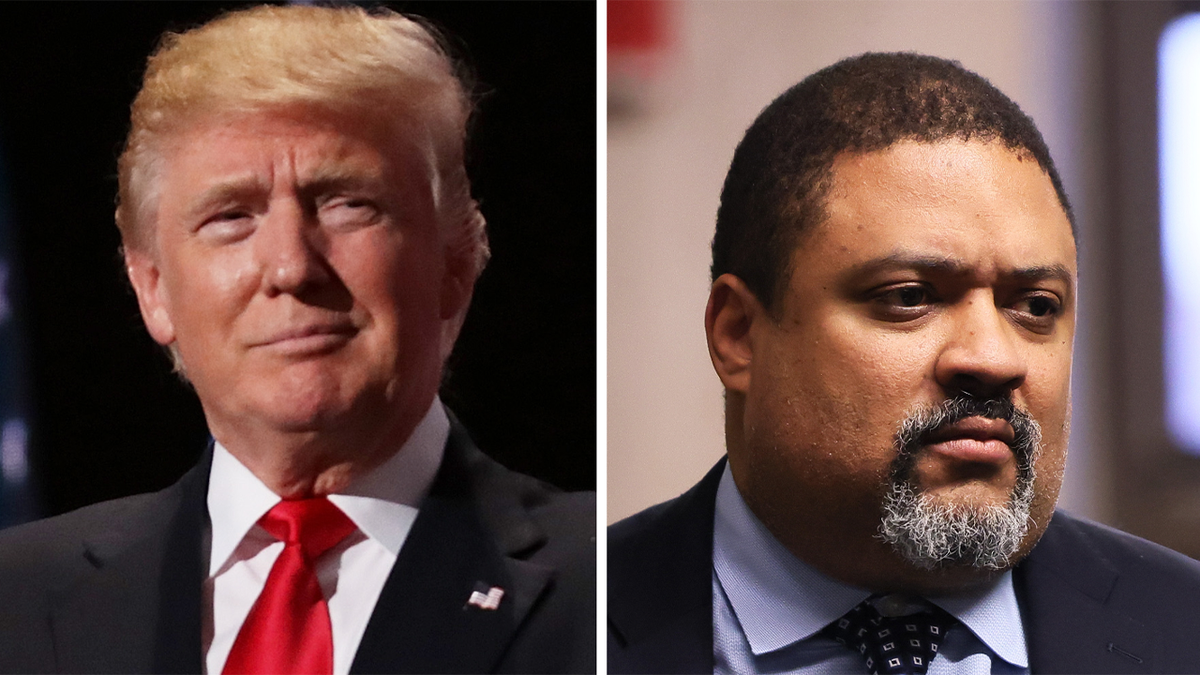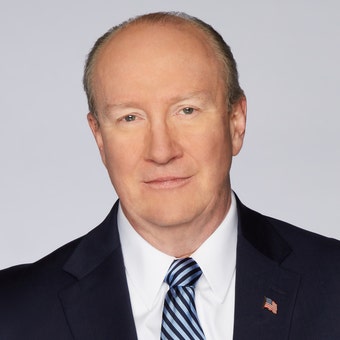No one who is not Trump would conceivably be charged with this: Andy McCarthy
Former federal prosecutor Andy McCarthy says the New York district attorney is an elected official which could politically sway his prosecutorial actions.
As has been widely observed, the New York State crime of falsification of business records, which Manhattan District Attorney Alvin Bragg is expected to charge against former President Donald Trump, is a misdemeanor. It can be inflated into a felony, but only if the state can prove beyond a reasonable doubt that the defendant intended, by this falsification of records, to "conceal the commission" of "another crime."
Bragg is expected to charge Trump with the felony. This is significant not merely in terms of a potential sentence – up to four years’ imprisonment for the felony, versus less than a year for the misdemeanor. It may matter a great deal in terms of whether the case is time-barred. In New York criminal law, the statute of limitations for most non-violent felonies (including the one applicable to falsifying business records) is five years; for misdemeanors, it is just two years.
If Bragg cannot prove a felony – i.e., if he fails to establish not only that (a) Trump falsified records but also that (b) he knew he had committed some second crime and intentionally sought to conceal it by falsifying the records – the case should be dismissed as time-barred.
Bragg’s investigation centers on a hush-money arrangement in which Trump’s former self-described "fixer," Michael Cohen, paid the porn star Stormy Daniels (whose real name is Stephanie Clifford) $130,000 in October 2016 to remain silent about a sexual liaison she claims to have had with Trump a decade earlier. Trump denies the affair, but whether it happened is irrelevant to the case because it is undisputed that there was a $130,000 nondisclosure agreement (NDA).
Cohen was reimbursed by Trump through a series of monthly payments in 2017, the first year of his presidency. Some of the checks were drawn on a trust account that was managed by executives at the Trump organization (Don Trump Jr. and Trump financial officer Allen Weisselberg signed these); the rest were signed by Trump himself, drawn on his personal account. The last payment was issued on December 5, 2017. We should probably assume that Trump’s 2017 financial records generated other business records, such as tax documents, in 2018. (Tax obligations are generally accounted for the year after the relevant transactions occur.)
If the last activity relevant to the case occurred in 2018, then the statute-of-limitations period for the felony would lapse five years later (i.e., during 2023). Bragg can be expected to argue that New York law tolls (or suspends) the statute of limitations during periods when the defendant is residing out of the state – as Trump was while he was president and when he moved his state of residence to Florida. But we should note that the aim of the New York tolling provision is to enable the state to prosecute fugitives who try to evade apprehension. Trump was never in that position. The fact that he was openly and notoriously living in Washington and Palm Beach did not in any way frustrate Bragg’s investigation. The charge could easily have been brought years ago. Prosecutors violate the Constitution’s guarantee of due process when they gratuitously delay the filing of charges to gain a tactical advantage.
Let’s assume for argument’s sake, however, that Bragg can get around the staleness problem. He still needs to prove that Trump intentionally concealed "another crime."
Bragg-friendly analysts have speculated that this crime could be a campaign finance violation. It’s a specious suggestion. First, when New York penal law refers to "another crime," it obviously means another New York crime. By contrast, campaign finance laws enacted by Congress, including those related to elections for president of the United States (a federal office), prescribe federal crimes, not New York crimes. Moreover, while it is highly unlikely that Trump violated federal campaign finance law, such violations – including many involving significantly higher money amounts than we are talking about here – are typically settled by fines paid to the Federal Election Commission, not by criminal prosecution.
Obviously, that is why the federal prosecutors, who investigated the Stormy Daniels caper before the Manhattan DA’s office did, declined to prosecute Trump.
New York has election finance laws, too, and it has been suggested that Bragg may rely on them to try to prove the felony. But those laws apply to statewide offices, not the presidency. The fact that presidential elections are conducted by each state (i.e., we don’t have a single, national election) does not mean New York’s legislature may preempt the campaign financing rules Congress has enacted for federal offices.
What’s more, in New York – where self-styled "progressive prosecutors," such as Bragg, are soft on real crimes committed by hardened offenders – campaign finance violations are not treated as felonies subject to criminal prosecution. They are routinely disposed of by the imposition of fines.
For example, as The Gothamist reports, New York City’s mayor, Eric Adams, is currently facing likely fines for accepting illegal campaign contributions, improperly accounting for them, and then contemptuously ignoring requests for documentation by state election authorities. Nothing new about that: former mayors Bill DeBlasio and Mike Bloomberg also ran into trouble with state election officials, the former fined, the later cited for violating "the spirit" of the laws in connection with a dubious $1.2 million contribution. There were no criminal prosecutions.
CLICK HERE TO GET THE OPINION NEWSLETTER

Donald Trump gives two thumbs up to the crowd during the evening session on the fourth day of the Republican National Convention on July 21, 2016 at the Quicken Loans Arena in Cleveland, Ohio.Photo by Chip Somodevilla/Getty Images) Manhattan District Attorney Alvin Bragg arrives to the courtroom during the Trump Organization tax fraud trial at the New York Supreme Court on December 06, 2022 in New York City. (Photo by Michael M. Santiago/Getty Images) (Getty Images )
CLICK HERE TO GET THE FOX NEWS APP
Even if Bragg could prove that there is some abstruse crime to be mined from beneath the misdemeanor falsification of records, that would not be enough to make the case. To convict Trump – and, therefore, for the filing of charges to be ethical – Bragg would have to be able to prove beyond a reasonable doubt that Trump not only knew about this other crime but also acted with the intent to conceal it. Given that lawyers are having a hard time even hypothesizing what this other crime may be, it is hard to imagine that Trump, a non-lawyer, knew about it. More to the point, though, the best explanation for the alleged falsification would be that Trump wanted to conceal the hush-money deal with a porn star from his wife and from voters. Clearly, that was why there was an NDA in the first place – and note NDAs are perfectly legal and common in settling civil litigation.
Obviously, until we see the indictment (assuming the grand jury returns one), we will not know what other crime Bragg may allege Trump was supposedly concealing. But it would be truly shameful if this elected progressive Democrat district attorney, who is best known for downgrading felonies to misdemeanors (or dismissing them outright) is trying to inflate a misdemeanor into a felony by applying – to a national election for federal office – state campaign laws that are not even enforced criminally in New York. It would be still more evidence that Bragg’s crusade against Trump is nothing more than brass-knuckles politicization of law-enforcement power.













































